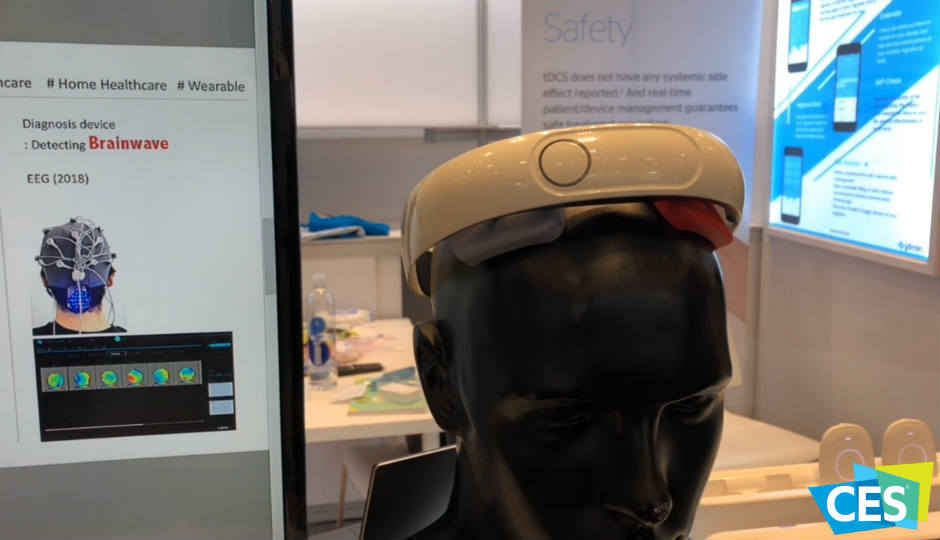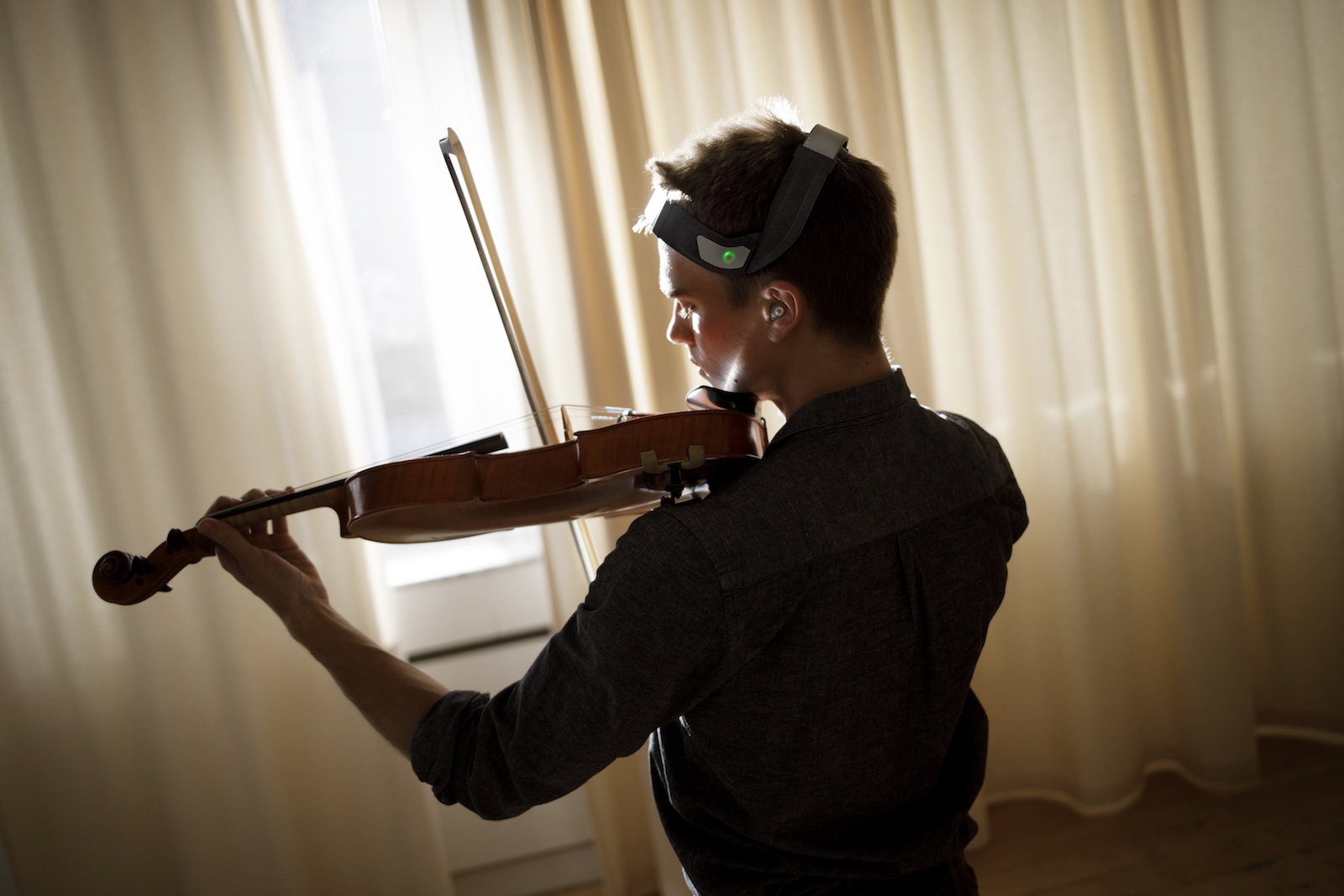Personal Neuromodulation: Choosing Quality Devices
With great interest comes great responsibility
Interest in personal neuromodulation continues to expand with more products and companies entering the space. The devices are divided into markets for medical therapeutic use and those marketed for wellness or self-improvement. At CES 2018 we saw examples of each Y-Brain and Modius.The Y-Brain device is marketed in South Korea as a head-band for depression.


While Modius promises weight loss Faced with an increasingly broad array of personal brain stimulation products, promising a really broad range of benefits, the question of what is safe comes up. Here I discuss a simple way to “draw a line in the sand” in regards to devices that are built with quality that helps support safety. This can be done in a way that spans all personal neuromodulation devices though I especially focus on transcranial Direct Current Stimulation. I do not deal at all with does the devices provide the benefit they claim to since thats a different device specific discussion.
LOTES Guidelines for personal neuromodulation devices
The new LOTES guidelines provide critical clarity for consumers, as well as physicians, press and regulators, dealing with the rapidly expanding space of personal neuromodulation. In the past it may have been hard or ambiguous to set a line between quality devices and those that for lack of quality present unneeded risks to users. The line in the sand distinguishing these efforts is basically the manufacturers responsibility to ensure reliability. That simply means that devices perform as users expect them to, which means doing what devices used in published trials do. For example, if a user wants to replicate a trial where 1.5 mA was applied for 20 minutes, then a quality device they get should provide 1.5 mA for 20 minutes when set to do so. This seems such a simple bar but unfortunately for devices not manufactured for quality, this is uncertain.
Who needs guidelines?
Given the simplicity of what tDCS is, a sustained current for some time, it may seem surprising that developing quality devices is a limitation for some manufacturers. But a basic understanding, even familiarity, with of how medical production works shows why this is not the case. Say for example a tDCS device have 10 components ordered from 10 suppliers. What if one of those suppliers ships a batch of resistors with a 10% error in value. Without quality control a manufacturer may not realize this batches issue and so all the devices assembled with components just from this one order has a different resistor than the rest. What are the consequences of such an error? Well who knows... it depends of course on the overall circuit, maybe even how the device is used by the user. But that lack of control is the point. If a recall or warning is needed, without quality control the manufacturer won’t even know who got the defective unit.
Another important lesson here is that quality is not about “some” devices working it is about “all” devices working. Quality therefore is not proven by taking the single first device made and testing it. That just shows that one device works. Quality is something that a manufacturer takes on to ensure all devices are reliable. The LOTES compliance is a stamp of quality saying the manufacturer is paying close attention. This can never guarantee everything is perfect, but it means a process in in place to try and make it so. Without LOTES, a manufacturer can be playing with fire; maybe things will work out or maybe with many devices being rapidly built, your unit may have a bug.
Why worry?
Given that tDCS is widely accepted by the research and clinical community as safe and tolerated, why worry at all about personal neuromodulation with tDCS? Well good experience using high-end devices, under expert supervision and often medical supervision and with pretty strict limits on things like intensity and number of sessions per day - all these things done in trials does not give a carte blanche to everytone doing tDCS at home. In fact those researchers who have run trials at home have done so under the “remote supervised tDCS” framework which is a far cry from personal neuromodulation. Now this does not mean there is evidence for serious risk from tDCS at home, except for many a burn if you don’t follow directions. It just means you can’t get any tDCS device on the internet and do whatever you want AND claim that it is ok because it is the same thing done in trials. Because it is not. Maybe what you are doing is close or maybe you are going out on a limb. And with a non LOTES device it is a branch in that limb because what the devices itself is doing may be unknown.
Bottom line?
You have an option when choosing a personal neuromodulation device. You can get one that is LOTES compliant or one that may not be. The list below is a partial one of current devices marketed for personal tDCS and how completely they satisfy the LOTES rules.
- ActivaDose tDCS kit : Fully Satisfied ✔ ✔ ✔
- Halo : Satisfied ✔ ✔
- tDCS Ultra : Lightly Satisfied ✔
- Thync : Satisfied ✔ ✔
- Y-Brain : Fully satisfied and medical grade - but available only through research or prescription ✔ ✔ ✔ ℞
- Soterix Medical Mini-CT : Fully satisfied and medical grade - but available only through research or prescription ✔ ✔ ✔ ℞
- IontoDC : ✔ ✔ ✔ ℞
Caveat one: The list above should not be considered official, because as of now there is no formal organization that certifies LOTES compliance. It was created based on the best information available now, including those companies that participated in the creation of it.
Caveat two: Robin Azzam is the CEO of Caputron which distributes, but does not manufacture, a range of personal brain stimulation devices including some mentioned here.
Caveat three: Absolutely nothing about this post should be taken as medical advice. If you are concerned about your health, the best and the first thing you should do is to talk to your doctor. Some of the devices mentioned here, may not be approved for medical treatment in your specific country.
Contact Us
Do you still have questions about neuromodulation devices, or do you need help to decide which one is best for you? Contact one of our neuromodulation experts.



















